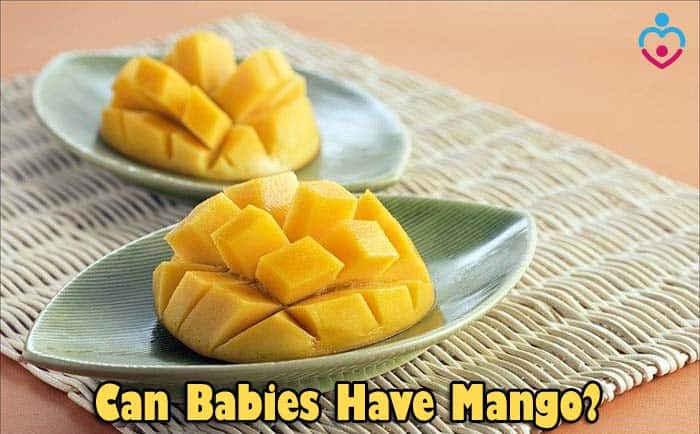
As you start to feed your baby solid foods, you might wonder if the mango is the right choice for them.
Mangos are not only delicious but also highly nutritious, and your little one will most likely love them. But when can you introduce this delicious fruit to their diet to be safe and avoid any potential risks?
Jump to:
Can babies have mango?
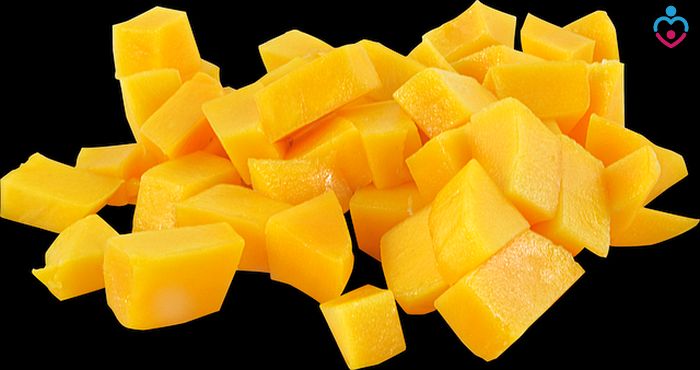
Babies can eat mango as soon as they start solid foods, which is around 6 months old. You have different options to feed them this fruit, and you can keep it in their diet as one of the common ingredients, especially for purees.
![]()
Can we feed mango to 6 month old baby?
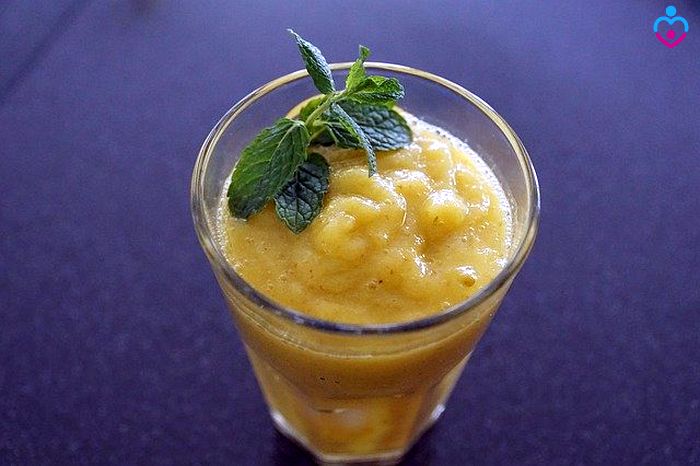
Not only that, your baby can enjoy mango as soon as they turn six months old, but they can also benefit from this fruit's incredible nutritional value.
- Mangos are rich in vitamin C; they contain some healthy carbs and even protein and folate.
- One mango will also bring to your baby's diet, vitamin B11, vitamin E, vitamin A, and vitamin B6, as well as other essential nutrients.
On top of that, your little one will love the sweet taste of this fruit, and they will want to keep having it, either as a meal when they are young or as a snack when they get older.
![]()
Can babies have mango as finger food?
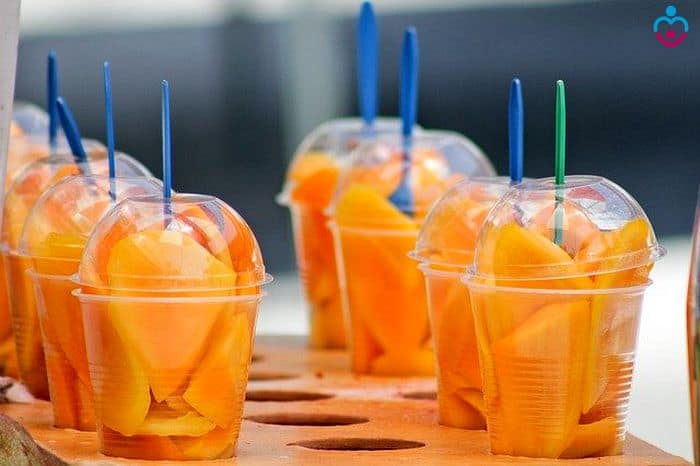
As your toddler grows older and starts getting those precious teeth, you will want to introduce finger food snacks.
- This type of food will help them develop their chewing abilities, and it will also calm down their teething discomfort.
- Mango is one of the best choices for finger food when your toddler needs a snack but also as they are teething. You can cut the mango in sticks that are thick enough for them to hold with their hands.
- If your baby is also teething, freezing the mango sticks can be a great idea as it will numb their gum pain. Also, you don't have to give your baby an entire mango at once. A couple of mango sticks should do as a finger food snack.
![]()
Is it OK to give Mango Puree to the baby?
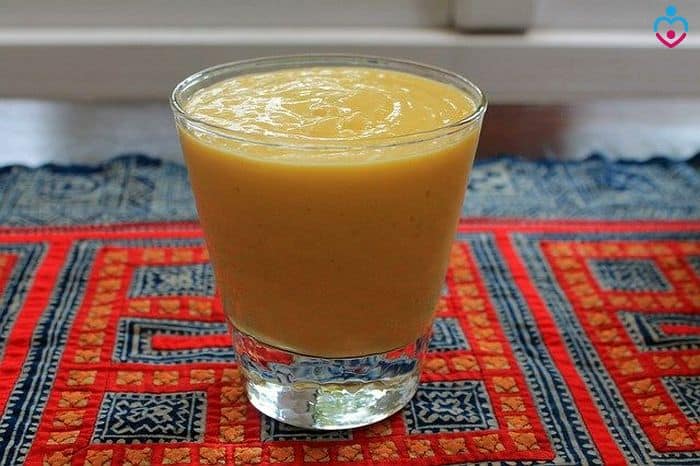
Mango puree is highly nutritious, and it has a delicious taste that babies usually love. To help your baby make the most of what this fruit has to offer, you should get a ripe mango.
- A mango is ripe when it has a beautiful orange color, and you can squeeze it just a bit in your hand.
- Before you prepare the mango, you will have to wash it and cut it into small cubes that are good for fitting in your blender.
- Peel the mango off and blend it by itself or along with some vegetal milk such as soy milk or coconut milk. You will probably have to experiment to see what your baby prefers best.
- This is all you have to do to offer your baby a bowl of fresh mango puree!
- This puree can be a meal by itself when your baby just starts eating solid foods, but as they grow more into the toddler phase, you will most likely offer it to them as a snack.
- Even if the mango is considered a healthy food for your baby, you should still keep an eye on them to notice any type of adverse reaction after eating this fruit for the first time.
- If you notice a skin rash in the next four days after feeding them mango, stop giving them this fruit. But mango allergy is rare and mild, so you shouldn't have to worry about it too much.
![]()
Baby poop after eating mango
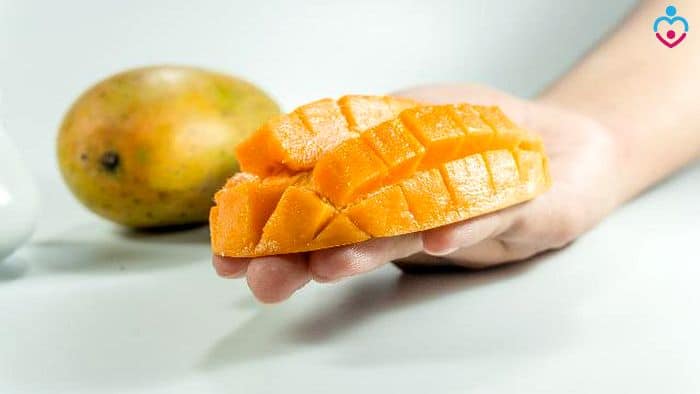
Mango is a healthy fruit to give to your baby. Still, besides its health benefits, it will also stimulate their digestive system.
- It is a great fruit to feed your baby if they are constipated, as it will help them have more dirty diapers.
- Naturally, mango has a warm nature, which makes them comforting for their little bellies, especially when they do not have stools.
- However, keep in mind that mango can also cause diarrhea or runny stools if you give it to them too often.
- A few times a week should be enough mango for a toddler younger than two years old. Mangoes will help your baby break down the protein as it reduces acidity in their digestive systems.
![]()
Mango for babies constipation
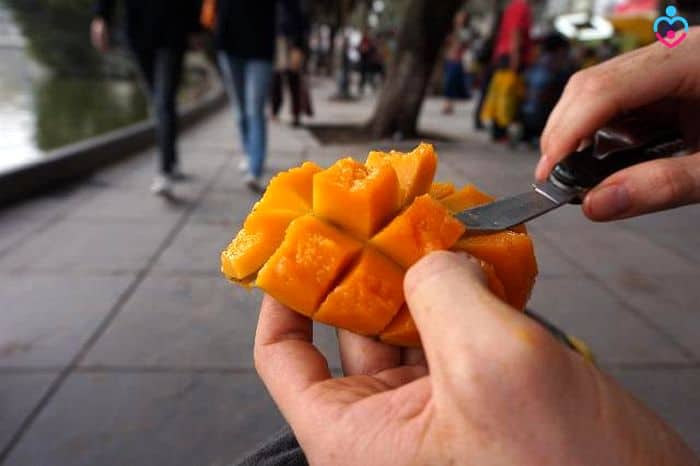
If your baby is constipated, you will want to look for natural remedies to ease their condition.
- Mangoes are an excellent solution for that. These fruits are very efficient in improving your baby's digestive system, and you don't have to overdo it.
- Half a mango is all it takes to get their digestive system going in the right direction for a baby younger than one-year-old.
- You can give your baby mango plain as finger food or as a puree or along with other fruits.
- Be careful not to add too many suit fruits to the same puree as you might overfeed your baby on natural sugar, which will give them too much energy.
![]()
Top 5 Simple Mango recipes for babies
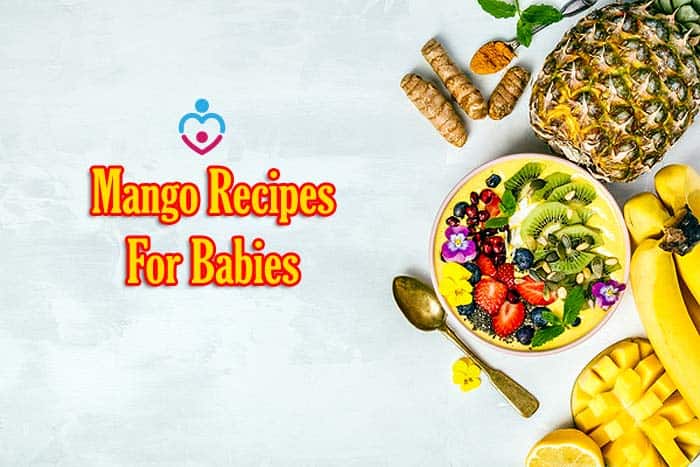
If you are wondering how to prepare mangoes for your little one, you should rest assured that there are many ways to do that. It depends on the age of your baby as well as their preferences. But besides the simple mango puree recipe you have above, we gathered five more to help you use this delicious fruit!
1) Carrot, mango, and apple puree
Mixing carrots, mangoes, and apples together in a delicious puree can't turn out to be anything else but delicious and nutritious.
- All you have to do is boil the carrots and blend them with the mango and apple.
- You don't have to boil the fruits in this recipe. One medium-sized carrot, along with one medium mango and a small apple, should be enough to feed an eight-month-old.
![]()
2) Chicken and mango puree
To feed your baby healthy protein along with the minerals and vitamins they need from fruits and veggies, you might want to introduce chicken breast.
- This lean meat will go great with mango.
- Boil the chicken breast and blend it with the mango.
- You can use 50 grams of chicken to one mango and increase the quantities as your baby starts eating more along time.
![]()
3) Salmon mango puree
Similar to the chicken and mango puree, the salmon is an excellent choice for toddlers.
- You can give them this puree starting with eight months old. It is straightforward to prepare, as well.
- Grill the salmon or bake it in the oven and blend it along with the mango. You don't have to boil the mango.
- As a matter of fact, it is recommended you leave the mango raw so it will conserve its nutrition better.
![]()
4) Mango and yogurt
Another combination you can try for your baby is mango and yogurt. You can use any type of natural, unflavored yogurt to mix it with your mango. This mix is excellent for babies starting with six months old.
![]()
5) Mango, banana, and avocado
A very nutritious puree is mango combined with banana and avocado.
- Like the carrots, mango, and apple recipe, you will need one fruit of mango, one avocado, and a medium banana.
- Peel them and cut them into cubes so you can blend them together. If your puree's consistency is too chunky, you can always add water or vegetal milk, such as soy milk.
- This puree is ideal for babies of seven months old or older.
![]()
As nutritious and tasty as mango is, it's important to not overfeed your baby with this fruit. Too much mango can lead to digestive issues and runny stools. At the same time, they will lack other essential nutrients in their diet if they overeat this fruit.
Keep the mango to twice or three meals a week, and you will offer your baby plenty of benefits from this fruit!
![]()
Key References
- "Your baby's first solid foods - NHS". Accessed October 24, 2020. Link.



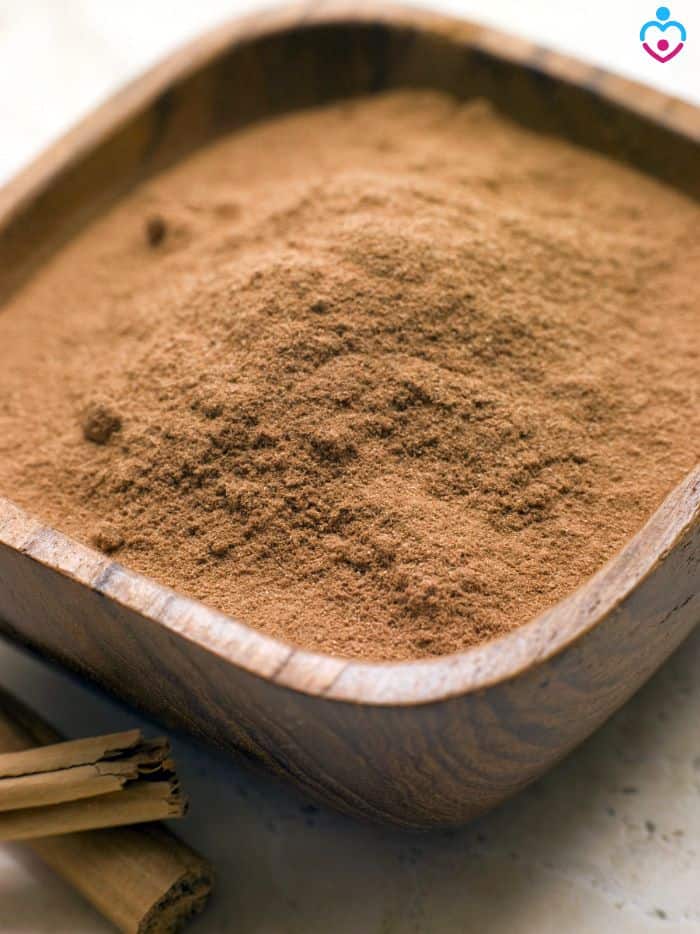
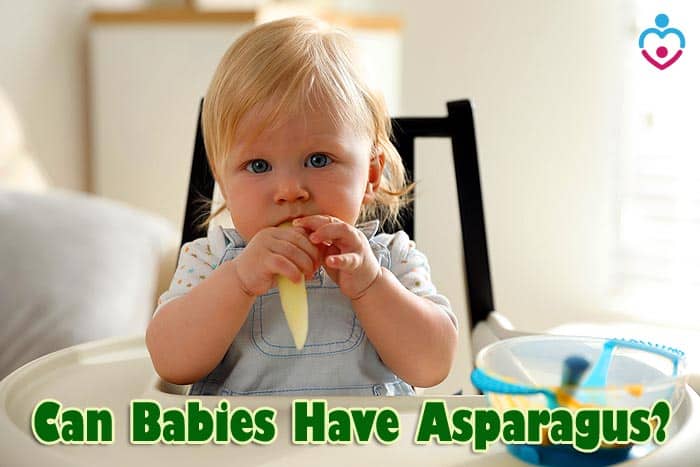
Leave a Reply